Putin seen punishing own people rather than foes with sanctions
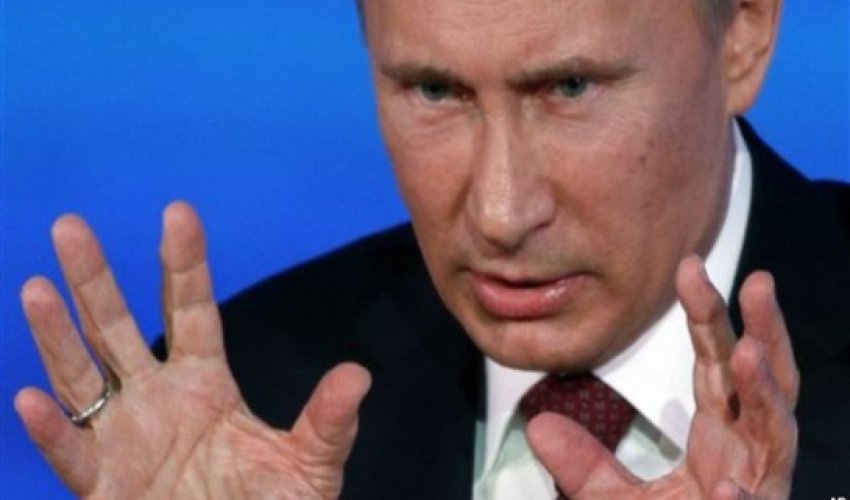
Russian President Vladimir Putin chose a funny way to punish his American and Europeanadversaries. By imposing sanctions on imports of U.S. and European agricultural goods, as he did this week, Putin will make itharder for his own people to find and afford foreign-made meat, cheese and fruit. And a Russian economy that’s already nearstall speed will probably slow further as the central bank comes under pressure to raise interest rates for the fourth time thisyear to battle an expected increase in inflation.“This is really bad economic policy,” said Anders Aslund, an economist at the Peterson Institute for InternationalEconomics in Washington. “Putin is really shooting himself in the foot.”Though the trans-Atlantic hostility over the Ukraine crisis may be reminiscent of the Cold War, Putin’s move was less anecho of Nikita Khrushchev’s 1956 boast, “We will bury you,” than a truculent “Who needs you?” He may not like the answer. In Washington, Obama administration officials yesterday projected an air ofdetachment over what they described as the Russian leader playing a bad hand badly. “The steps that Russia announced are likely insignificant as an impact on the U.S. economy,” said David Cohen,undersecretary of Treasury for terrorism and financial intelligence. “What the Russians have done here is essentiallyimpose sanctions on their own people.”Barely MeasurableAmerican exports to Russia are a barely measurable one-tenth of 1 percent of the U.S. gross domestic product, accordingto Jason Furman, head of the White House Council of Economic Advisers. The European Union depends on Russian customers for eight-tenths of 1 percent of the EU’s economy. American exporters sent $1.3 billion in food and other agricultural products to Russia in fiscal 2013, according to theU.S. Department of Agriculture. Russia has barred imported American dairy products for several years, so the new sanctionswill have “almost no impact,” said Alan Levitt, vice president of communications at the U.S. Dairy Export Council.Russia’s exports to the U.S. and Europe, meanwhile, make up 13 percent of its economy. And the companies that are beingblacklisted -- from the U.S., EU, Canada, Norway and Australia - - last year provided 38 percent of the imported food products covered by the ban, according to Capital Economics in London. The effect on some countries, especially the Baltic states of Lithuania, Extonia and Latvia could be greater.‘Biggest Loser’ “It seems likely the biggest loser will be Russia itself,” Neil Shearing, the chief emerging markets economist atCapital Economics, said in a research note.Russia’s economic slowdown began in 2011. The International Monetary Fund last month forecast growth this year of just 0.2percent. Now, the prospect of recession looms. Even before the Russian retaliation, BNP Paribas was forecasting a contractionof 2 percent this year and 3 percent next year.Putin’s domestic popularity has soared amid the Ukraine crisis and the annexation of Crimea, with his approval ratingreaching 87 percent. And he’s caught between the sanctions’ economic bite and the danger of alienating his domesticsupporters by backing down.“Putin has created for himself a trap,” Angela Stent, director of Georgetown University’s Center for Eurasian, Russianand East European Studies, said on Bloomberg Radio. Stoking InflationStill, though the import ban is likely to exacerbate 7.5 percent inflation -- which is already running above the centralbank’s target -- Russian patience in the face of a standoff with other nations shouldn’t be underestimated.Plus, GDP per capita last year reached $14,818, up 27 percent from five years earlier, according to IMF data compiledby Bloomberg.“Prices may go up a bit, but this is not so terrible,” said Leonid Tikhonsky, 66, director at a secondary school inKolomna, Russia. “Russia passed through the most difficult times in its history.” Putin, a former KGB officer who has effectively ruled Russia for almost 15 years, probably believes he can outlast hisadversaries, says Steven Pifer, who was U.S. ambassador to Ukraine from 1998 to 2000. “For a country that imports 40 percent of its foodstuffs, banning imported food would seem to be an odd strategy,” hesaid. “But the calculation he’s making here is that he can find a way to ride this out.”Brazil OpportunityRussia’s turn away from the U.S. and Europe may mean opportunities for other countries. Production of chicken andpork can be increased more quickly than beef, according to Jose Augusto de Castro, president of the Brazilian Foreign TradeAssociation.“Certainly, Brazil will benefit,” he said. Russia’s flat prohibition on imports from certain countries may run afoul of its commitments as a World Trade Organization member, said Trevor Kincaid, a spokesman for the U.S. traderepresentative’s office.Russia joined the global trade body in 2012 after almost two decades of negotiations. Cooperation on trade has turned to conflict, with the U.S. last month adding to its sanctions on Russia over the fighting in Ukraine, barring two Russian banks and two large companies from obtaining financing in the U.S. The latest measures also freeze U.S. assets and bar new contracts for eight Russian arms makers, including the manufacturer of the AK-47 assault rifle.The EU has imposed a range of sanctions.More SanctionsMore sanctions by the U.S. and EU may lie ahead. With Russian troops poised for possible intervention in easternUkraine, NATO Secretary General Anders Fogh Rasmussen said Russia risks further penalties and international isolation ifits soldiers move in.If Russian troops cross the border, “there’s no question you’ll see harsher American and European sanctions,” Pifersaid.Putin is also threatening to go further. Russia is weighing a possible ban on foreign airlines flying in its Siberian andpolar airspace, Prime Minister Dmitry Medvedev told a televised cabinet meeting. That would hit airlines such as Air France-KLM Group and Deutsche Lufthansa AG on their flights from Europe to Asia,forcing consideration of added stopovers and higher fares to cover higher fuel costs. Yet here, too, Russia would probably suffer more than its foreign targets. Aeroflot, the nation’s biggest air carrier,earned about $170 million last year in royalties from foreign airlines for overflight rights, according to Irina Stupachenko,an analyst at Otkritie Capital in Moscow.Negative ImpactAny restrictions would be “very negative” for the Russian airline, which gets the equivalent of 18 percent of its full-year earnings from the payments, she said. The Russian government also is studying the possibility of eliminating imports of foreign-made cars and airplanes, Medvedev said.Russia’s latest trade tightening is part of a years-long turn toward protectionism, according to Simon Evenett, a professor of international trade and economic development at the University of St. Gallen in Switzerland.Russia already has implemented 38 protectionist measures this year, including 28 trade-distorting subsidies and six newtariffs, said Evenett, who coordinates the Global Trade Alert monitoring network. “No other government has introduced more protectionist measures since the beginning of 2014,” he wrote on Aug. 7.(bloomberg.com)Bakudaily.Az
Latest news 
More news 
























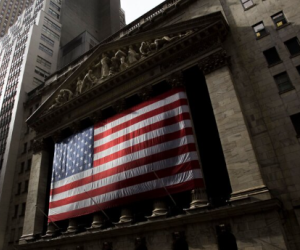

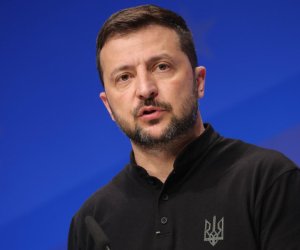
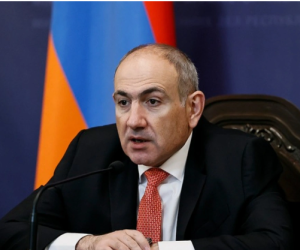
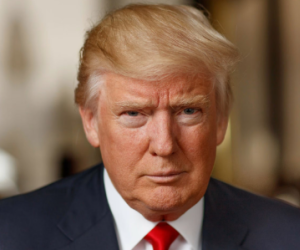
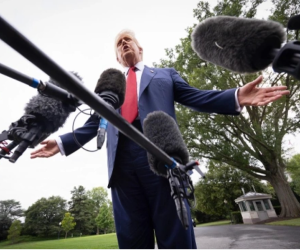
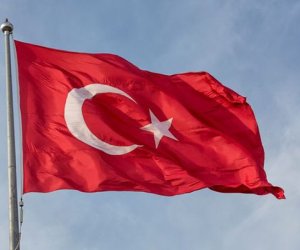




 Photo
Photo 



 Video
Video 

